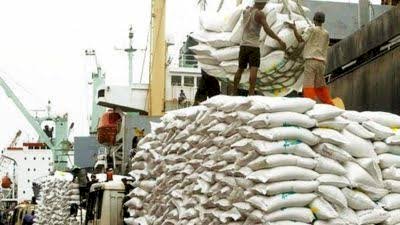Food Shortage: 'We Borrowed 5,000 Metric Tonnes Of Grains From ECOWAS'- Agriculture Ministee
Baba-Shehuri explained that to address the incessant worrying food crisis in the West African sub-region, especially in the Sahel, the heads of government of ECOWAS member states decided to establish a Regional Food Security Reserve Programme.

The Federal Government has disclosed that a total of 5,000 metric tonnes of assorted grains were borrowed by Nigeria from the food stock of the Economic Community of West Africa States.
The Minister of State for Agriculture and Rural Development, Mustapha Baba-Shehuri, disclosed this while receiving the 3,999 tonnes of cereals donated to the Federal Government by ECOWAS with its donors and financial partners.

The minister received the 3,999 tonnes of cereals on behalf of the Federal Government at the Hotoro Grain Depot, in Kano State, according to a statement issued in Abuja on Sunday by the Federal Ministry of Agriculture and Rural Development.
Baba-Shehuri explained that to address the incessant worrying food crisis in the West African sub-region, especially in the Sahel, the heads of government of ECOWAS member states decided to establish a Regional Food Security Reserve Programme.
He said this necessitated the signing of contract agreement between ECOWAS and the ministry’s Department of Food and Strategic Reserve on July 7, 2017.
READ ALSO:
"1,500 Nigerians Killed, Kidnapped In 8 Northern States" – Amnesty International Reveals
The minister said, “The government of the Federal Republic of Nigeria loaned 5,000MT of assorted grains from ECOWAS stock which was agreed to be paid back on grain for grain basis
“Modalities had been put in place to replace the ECOWAS stock before the advent of COVID-19 pandemic. That notwithstanding, I can assure you that the stock will be replaced in due course.”
On the donation by ECOWAS, the minister said it would be used to support the most vulnerable populations to help mitigate the effect of the COVID-19 pandemic in Nigeria.






































